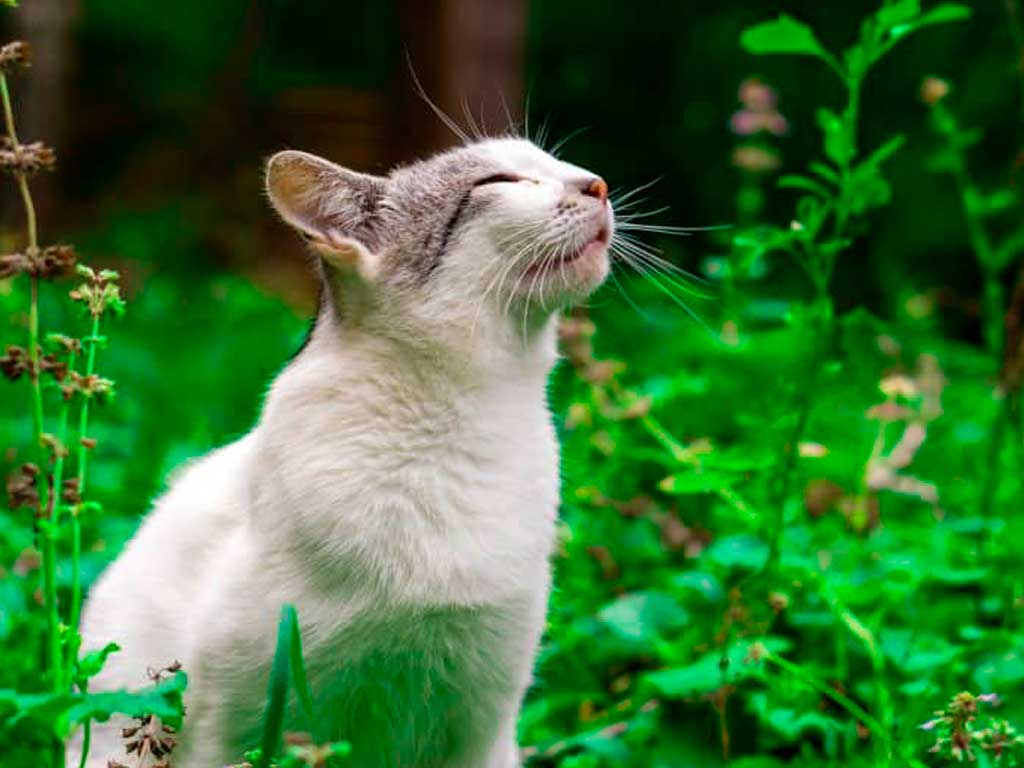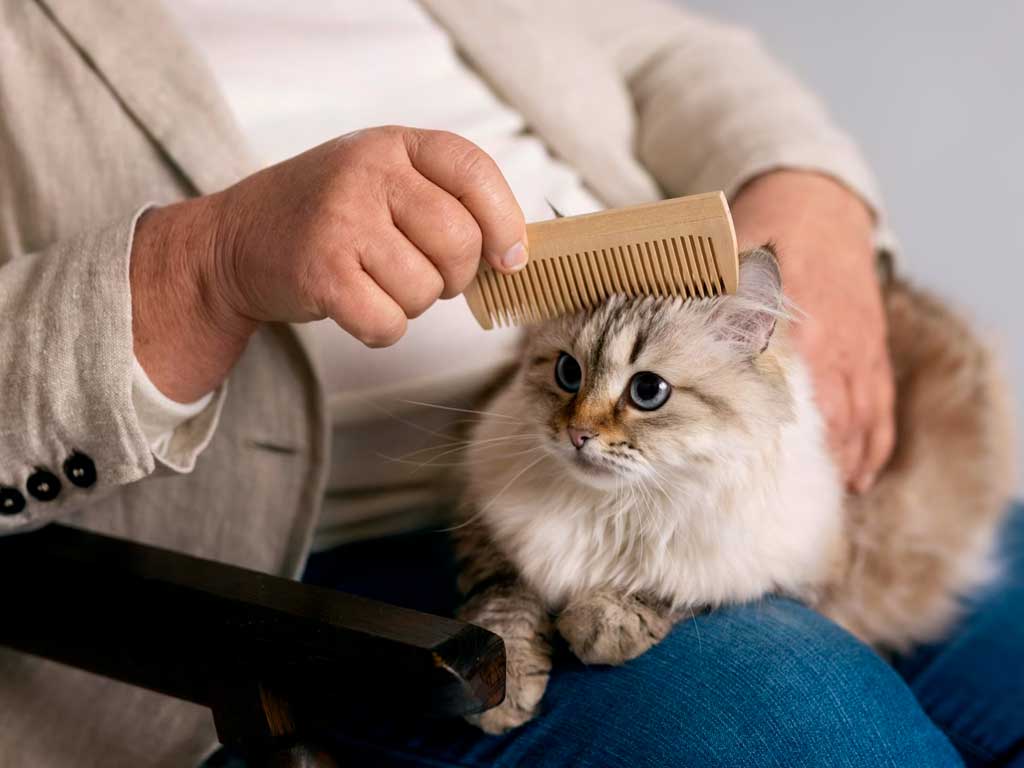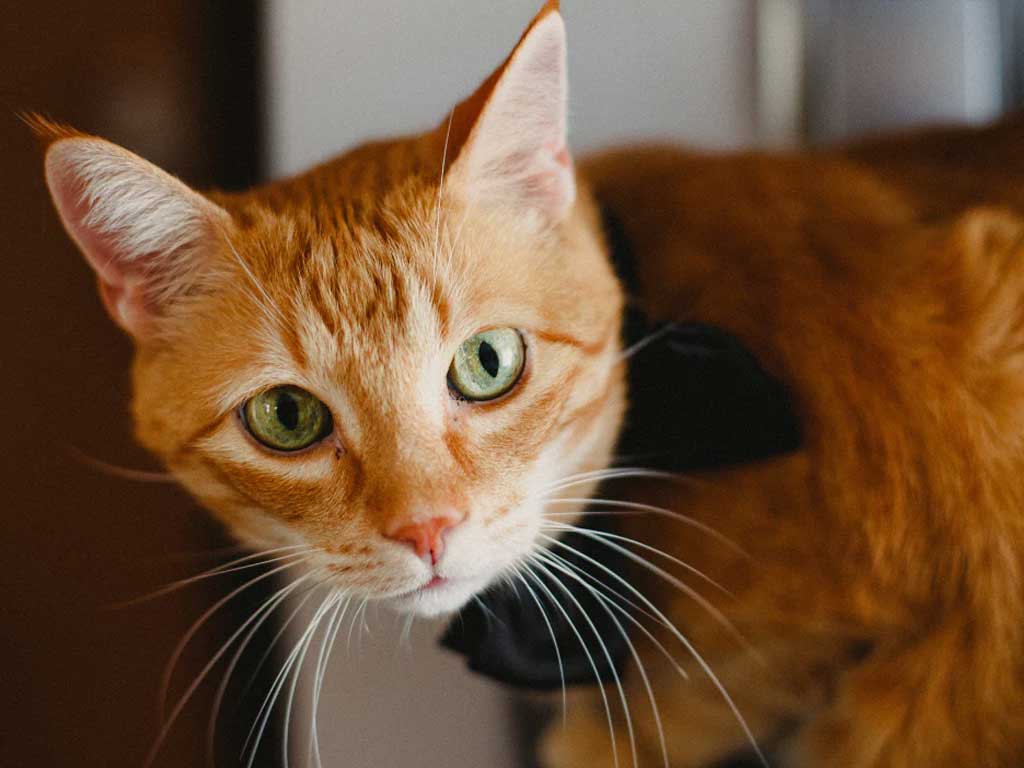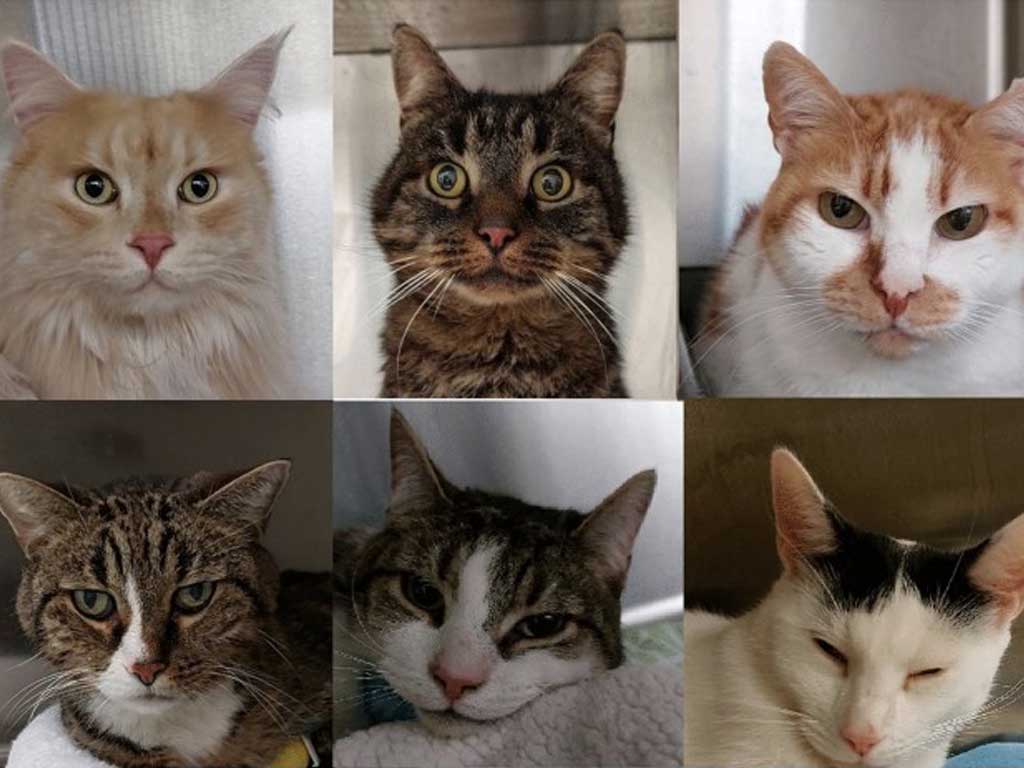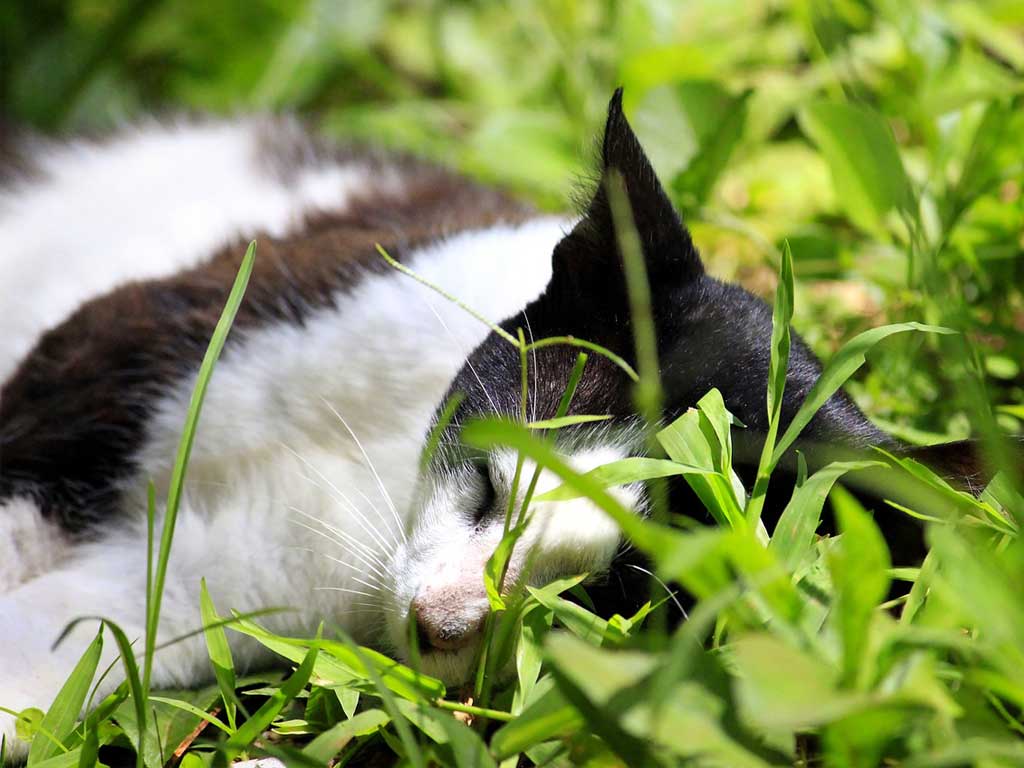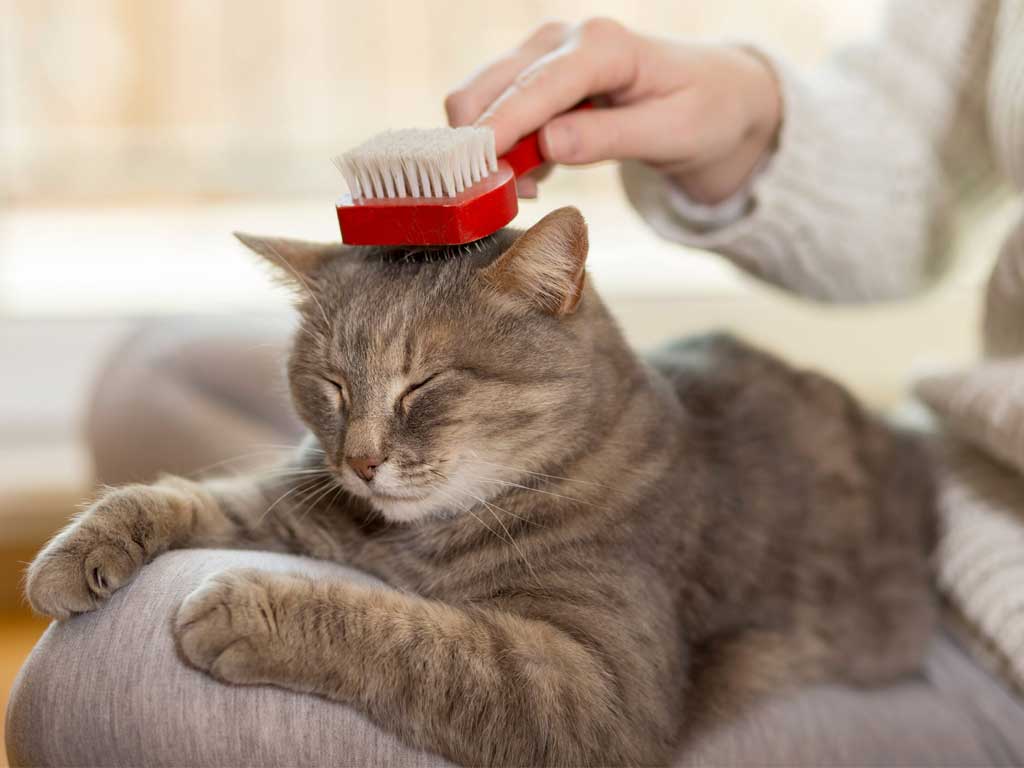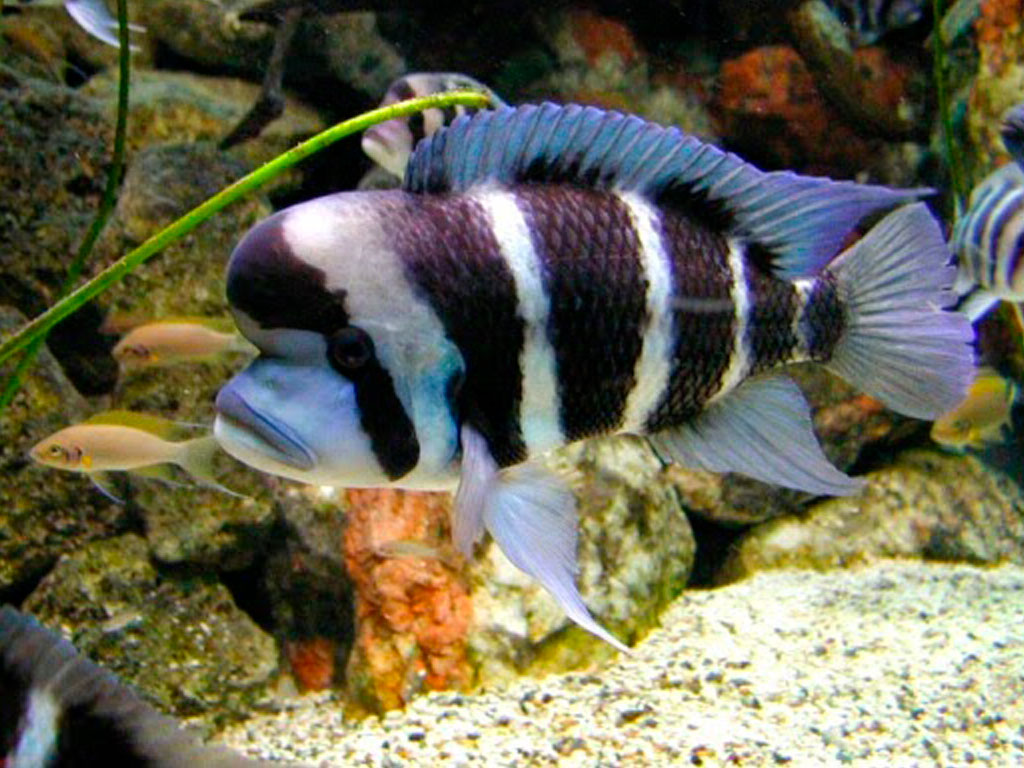As cat lovers, we adore everything about our feline friends—their playful antics, their soothing purrs, and their independent spirits. However, one behavior can test the patience of even the most dedicated owner: inappropriate urination.
Recently, a member of our community shared her frustration. Stray cats were entering her home and spraying, which in turn caused her own cat to begin marking the same spots. It’s a common and stressful problem. When a cat starts urinating outside its litter box, it’s often a sign of territorial marking, stress, or a response to the presence of other felines.
The good news is that you don’t have to resort to harsh chemicals to solve this issue. Nature has provided a variety of scents that cats find incredibly unpleasant, yet are completely safe for them. These odors can be used as powerful, harmless deterrents to keep cats away from areas you want to protect, whether it’s your new sofa, a favorite rug, or the entrance to your home.
This guide will walk you through 10 specific scents that cats strongly dislike. By strategically using these aromas, you can create a gentle boundary and guide your cat—and any unwelcome visitors—away from inappropriate potty spots.
1. The Power of Citrus: A Classic Feline Repellent
If there’s one category of smells that cats universally despise, it’s citrus. The sharp, acidic aroma of lemons, oranges, grapefruits, and limes is overwhelming to a cat’s sensitive nose. While we might find it refreshing, for a cat, it’s a powerful “keep away” signal.
How to Use It:
- Fresh Peels: This is the simplest and most natural method. After you enjoy an orange or squeeze a lemon, don’t throw away the peel! Place the fresh peels in the areas where you don’t want cats to go. This could be in your potted plants, near a doorway, or along a windowsill. The fresher the peel, the more potent the essential oils. You can even give the peel a little squeeze to release a fresh burst of that citrusy spray, which is packed with the essential oils cats find so offensive.
- Citrus Concentrate: For a broader application, like cleaning floors, you can purchase natural citrus concentrates. Add a few drops to your mop bucket with water and clean the floors in the problem areas. This leaves behind a subtle scent that is pleasant to you but a major deterrent for any feline looking for a place to mark.
2. The Potent Punch of Vinegar
Vinegar is a household staple with incredible cleaning power, and its strong scent is also a highly effective cat repellent. The sharp, acidic smell of white vinegar works wonders to discourage cats from returning to a previously soiled spot.
How to Use It:
- Cleaning Solution: Create a simple solution by mixing equal parts white vinegar and water. Use this mixture to scrub the floors or surfaces where the cat has been urinating. This not only cleans the area but also neutralizes the lingering smell of urine, preventing the cat from being attracted back to the same spot.
- Consistency is Key: The scent of vinegar will fade over time. For this method to be effective, you’ll need to be persistent. The repellent effect typically lasts for about 24 hours. Plan on reapplying the vinegar solution by mopping or spraying the area at least every other day to maintain a consistent barrier that your cat will learn to avoid.
3. Eucalyptus: A Scent That Drives Cats Away
The strong, medicinal, and minty aroma of eucalyptus is another scent that cats find genuinely irritating. It can drive them “loco,” as the saying goes, making them want to be anywhere else but near that smell. This is especially useful during warmer months when we tend to keep doors and windows open, inadvertently inviting neighborhood cats inside.
How to Use It:
- Eucalyptus Oil in Water: This method is perfect for mopping large floor areas. Purchase a small bottle of eucalyptus essential oil. Fill a mop bucket halfway with clean water and add about 15 to 20 drops of the oil. Mop the floors as you normally would. For humans, the scent is often associated with cleanliness and respiratory relief, but for a cat, the moment it catches a whiff of eucalyptus, it will likely turn the other way. It’s a fantastic way to protect your home’s entry points.
4. Aromatic Herbs and Spices: Lavender and Cinnamon
Moving into the world of herbs and spices, lavender and cinnamon are two more pleasant-for-us, offensive-for-cats scents. Their strong aromatic profiles are too much for a cat’s delicate olfactory senses.
Lavender:
- How to Use It: You can create a natural lavender-infused water for cleaning. Take a handful of fresh or dried lavender and let it macerate (soak) in a container of water for a couple of days. The water will take on the scent and a slightly darker color. Strain the lavender out and mix this infused water with your regular mopping water. You’ll be left with a beautifully smelling floor that cats will actively avoid.
Cinnamon:
- How to Use It: This method is even more direct. Simply add cinnamon powder to the water you use to wash your floors. While it might leave a very fine, dusty residue on some surfaces, it’s incredibly effective. If there is a particular spot that is a chronic problem, using cinnamon is one of the most powerful ways to send a clear message to your cat that this area is off-limits.
5. The Pungent Power: Spicy Scents
Spicy and pungent aromas are next on the list. Smells like mustard, pepper, garlic, and onion are things a cat would never voluntarily get close to. Unlike the previous methods, these are best used strategically in specific, targeted spots rather than diluted in water.
Pepper:
- How to Use It: If you have a cat that likes to urinate in your houseplants, sprinkling some ground black pepper on the soil can be an effective solution. The scent alone is a deterrent. If the cat gets close enough, the pepper can cause a mild sneeze. This isn’t a cruel or harmful punishment; rather, it’s a small, memorable discomfort. The cat creates a negative association—”getting close to this plant makes me sneeze”—and learns to stay away from the pot for good.
Garlic and Onion:
- How to Use It: The potent compound allicin, found in both garlic and onion, is brutally offensive to cats. To keep a cat away from a specific area, like a small tree or a garden bed, you can strategically place a few cloves of garlic or pieces of onion around the base. You don’t need to do anything else. The natural aroma they release into the air is more than enough to create an invisible fence that a cat will not want to cross.
6. Leveraging Your Cleaning Routine: Pine-Scented Products
Many of us already use pine-scented products for cleaning. If you’re dealing with a cat urination problem, it might be the perfect time to switch your floor detergent to one with a strong pine fragrance.
Strong, forest-like smells like pine and eucalyptus are powerful repellents. They are so potent that they can sometimes be unpleasant even for humans, so you can only imagine how a cat, with its far superior sense of smell, perceives them.
How to Use It:
- Switch Your Cleaner: Simply swap your current floor cleaner for a pine-based one. This is an incredibly easy and efficient method because it combines two tasks in one: you are cleaning your home while simultaneously laying down a scent barrier. The lingering smell of pine will help deter cats from marking their territory on your clean floors.
Living with cats is a joy, and managing their behavior is part of the responsibility. When faced with unwanted urination, it’s important to approach the problem with patience and understanding. These natural scent-based deterrents offer a kind but effective way to guide your cat’s behavior without causing them any harm or stress.
Remember that consistency is your greatest ally. A one-time application of any of these scents won’t be a permanent fix. By regularly refreshing the peels, re-mopping with the scented water, or re-sprinkling the spices, you are reinforcing the boundary. Over time, your cat (and any neighborhood visitors) will learn which areas are off-limits, leading to a cleaner, more harmonious home for everyone.
(FAQs)
Are these scents genuinely safe and not harmful to my cat?
Yes, all the scents listed—citrus, vinegar, eucalyptus, lavender, cinnamon, pepper, garlic, onion, and pine—are considered non-toxic repellents. They work because cats find the smells unpleasant, not because they are poisonous. However, they should be used as environmental deterrents. You should never apply essential oils or these substances directly to a cat’s fur or skin.
How often do I need to reapply these scents to keep them effective?
This depends on the scent and application. Liquid-based scents like vinegar or mopping solutions tend to fade within 24-48 hours and should be reapplied every couple of days. Solid items like citrus peels or garlic cloves may last longer but should be replaced once they dry out and lose their potency, typically within a week.
Why do cats hate citrus and other strong smells so much?
Cats have a sense of smell that is about 14 times more powerful than a human’s. Smells that we find pleasant or moderately strong, like citrus or pine, can be an overwhelming olfactory assault for them. The potent compounds in these items (like limonene in citrus or allicin in garlic) irritate their nasal passages, and they naturally avoid them.
My cat started urinating inside right after neighborhood cats appeared. Why?
This is a classic case of territorial marking. Cats use urine to communicate and claim territory. When new, unfamiliar cats enter their perceived space (even just your yard), your cat may feel threatened or challenged. They will then spray in key locations (like doorways and windows) to re-establish their claim and send a message to the intruders that this territory is already taken.
The article mentions pepper makes cats sneeze. Is that cruel?
No, it’s not considered cruel. The sneeze is a mild, brief, and harmless reaction that creates a negative association with the area. It’s startling enough to make the cat remember, “I don’t like what happens when I go near that spot,” without causing any actual pain or lasting harm. It’s a form of gentle behavioral correction.
Won’t using vinegar and onion just make my house smell bad?
While these scents are strong initially, they dissipate for the human nose relatively quickly. The smell of vinegar from mopping usually fades once the floor is dry. For garlic or onion, you only need to use a small amount in a targeted, often outdoor or less-frequented, area. For general indoor use, scents like citrus, lavender, or pine are often more pleasant for the human occupants.
Can I use these scents to keep cats out of my garden or flower beds?
Absolutely! Many of these methods are perfect for outdoor use. Spreading citrus peels, ground pepper, or placing garlic cloves around your plants is a great way to protect your garden without using harsh chemical repellents that could harm your plants or the ecosystem.
My cat is urinating inappropriately, but I don’t have other cats coming around. What should I do?
If territorial marking isn’t the cause, you should first rule out a medical issue. Urinary tract infections, bladder stones, and kidney disease can all cause a cat to avoid the litter box. A trip to the veterinarian is the most important first step to ensure your cat isn’t in pain or sick.
Which of these methods is the easiest to start with?
The easiest methods are often those that integrate into your existing routines. Switching to a pine or citrus-scented floor cleaner is effortless. Using leftover citrus peels after cooking is another simple, no-cost option to try first.
Can I use essential oils in a diffuser to repel cats from a whole room?
You should be extremely cautious with this. Many essential oils, especially in a concentrated, diffused form, can be toxic to cats if inhaled over long periods or if the particles land on their fur and are ingested during grooming. Tea tree, eucalyptus, and citrus oils, in particular, can be problematic in diffusers. It is much safer to apply the diluted scents to surfaces as described in this article.

